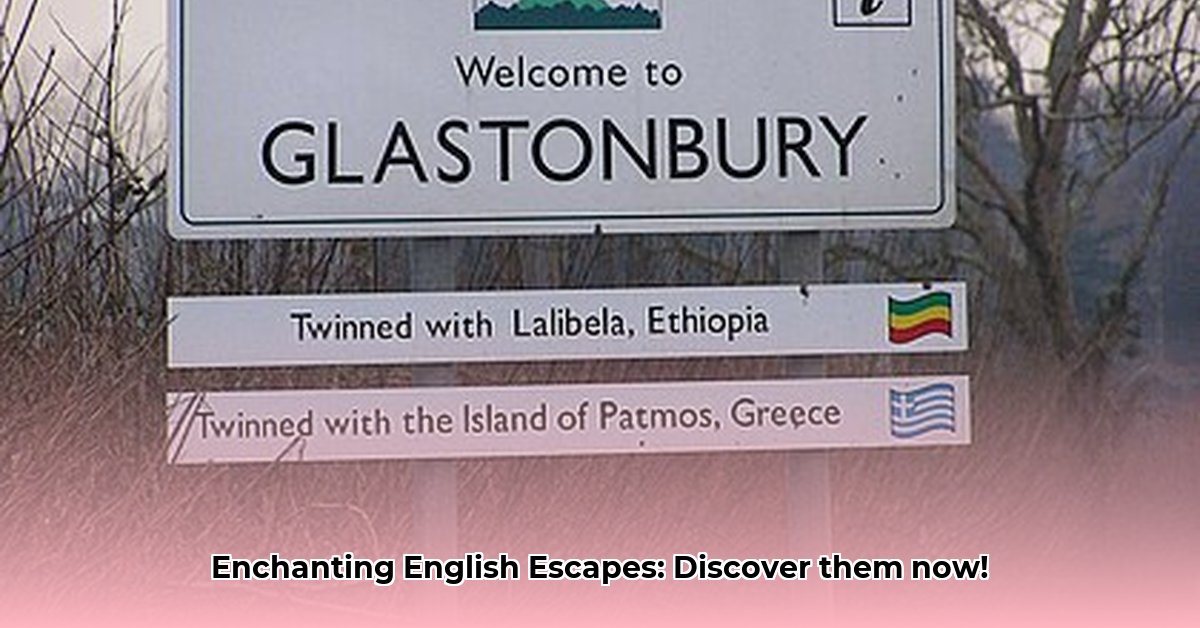Ever wondered about the English towns whose names start with “E”? Turns out, figuring out exactly which ones qualify is trickier than you might think! Different sources tell different stories. But don’t worry, we’ve dug deep, compared notes, and put together a list of those charming towns. For a more comprehensive list, check out this helpful resource: E-towns list. We’ll spill the tea on their history, quirks, and what makes each one special – including a bit of a heads-up on any disagreements about what actually counts as a “town.” Get ready to discover some hidden gems and plan your next English adventure!
Cities That Start with E in England: A Charming Exploration
Ever wondered about the places in England whose names begin with the letter “E”? Let’s embark on a fun journey to discover some of these delightful towns and cities! It’s a bit of a detective story, though, because figuring out what officially counts as a “city” in England isn’t always clear-cut. Let’s explore historic English settlements and urban landscapes.
The “City” Conundrum: It’s Complicated!
Defining “city” in England is surprisingly tricky. Some people focus on historical documents – did the town get a special charter a long time ago? – while others look at things like population size or administrative status. This creates some confusion! We might find different lists depending on who you ask, which is why we’re going to take a broad look rather than a completely precise one. Think of this as a starting point for your own explorations. Consider the administrative divisions and population density. Determining city status can involve analyzing factors like infrastructure, economic activity, and the presence of a cathedral.
E-Cities: A Diverse Bunch
Based on various sources, here are some towns and cities starting with “E” that often pop up. Remember, depending on your definition of “city,” you might find others!
- Ealing, London: A vibrant West London borough, Ealing boasts a blend of Victorian architecture, modern shopping, and a thriving cultural scene. Notable for its film studios and numerous parks, Ealing offers a balanced urban experience.
- Earley, Berkshire: Situated near Reading, Earley is a residential town known for its green spaces and family-friendly environment. Its proximity to major transportation routes makes it a convenient location for commuters.
- Easingwold, North Yorkshire: This charming market town provides a tranquil escape with its traditional market square, independent shops, and surrounding agricultural landscape. Easingwold offers a glimpse into rural English life.
- Eastbourne, East Sussex: A classic seaside resort, Eastbourne features Victorian architecture, a long promenade, and stunning coastal views. Its location near the South Downs National Park makes it ideal for outdoor enthusiasts.
- East Grinstead, West Sussex: A historic market town, East Grinstead is known for its well-preserved medieval buildings and proximity to the Ashdown Forest. Its rich history and picturesque setting attract visitors year-round.
- Eastleigh, Hampshire: Growing rapidly in the 19th century due to railway expansion, Eastleigh retains its railway heritage while serving as a key commuter town near Southampton. Its transport links make it a convenient base for exploring the region.
- Eccles, Greater Manchester: Historically an industrial town, Eccles is now known for its Eccles cakes, a traditional pastry. Its location within Greater Manchester provides access to a wide range of amenities and cultural attractions.
- Edmonton, London: Located in North London, Edmonton has seen significant urban growth. Its diverse community and proximity to central London make it a bustling and vibrant area.
- Egham, Surrey: Situated near Runnymede, where the Magna Carta was sealed, Egham is a town with historical significance and home to Royal Holloway, University of London. Its riverside location and academic atmosphere contribute to its unique character.
- Ellesmere Port, Cheshire: Developed around the Manchester Ship Canal, Ellesmere Port is an industrial town with a rich maritime history. The National Waterways Museum is a key attraction.
- Ely, Cambridgeshire: This cathedral city is renowned for its magnificent medieval cathedral, often called the “Ship of the Fens.” Ely’s historical significance and Fenland landscape make it a unique destination.
- Enfield, London: A large town in North London, Enfield combines historic buildings with modern shopping centers. Its green spaces and transport links provide a balanced urban environment.
- Epping, Essex: Known for its proximity to Epping Forest, Epping is a market town popular with nature lovers. Its connection to London via the Central Line makes it easily accessible.
- Epworth, Lincolnshire: As the birthplace of John Wesley, Epworth has a rich religious heritage. This quiet, rural town offers a peaceful retreat.
- Esher, Surrey: An affluent suburban town, Esher is known for its proximity to Sandown Park Racecourse and leafy surroundings. Its desirable location and proximity to London make it a sought-after residential area.
- Exeter, Devon: A historic city with Roman origins, Exeter boasts a stunning cathedral, a vibrant university, and serves as a cultural and economic hub for the South West.
- Exmouth, Devon: Located at the mouth of the River Exe, Exmouth is a seaside town known for its long sandy beaches and as a gateway to the Jurassic Coast.
- Eye, Suffolk: With its historic castle ruins and market town heritage, Eye offers a glimpse into rural Suffolk life. Its name derives from its past as an “island” surrounded by water and marshland.
“The variety shows just how diverse England is – some cities are sprawling modern metropolises, while others are smaller and steeped in history and community,” said [Dr. Eleanor Vance], History Professor at [University of Sussex].
These are just a few of the possibilities! The variety shows just how diverse England is – some cities are sprawling modern metropolises, while others are smaller and steeped in history and community. We are still uncovering new details about their rich pasts. Discover urban diversity and cultural landmarks.
Across the Map
Notice that these “E” places are spread all over England. That shows that the letter “E” isn’t tied to any one particular region. Their location reflects centuries of settlement and growth across the country. It reminds us that England’s history isn’t simply a single narrative, but a complex tapestry woven from numerous threads. Explore regional distribution and historical geography. Cities like Exeter in the South West contrast sharply with towns such as Easingwold in the North, highlighting the country’s diverse landscapes and historical developments.
Defining “City”: Why It Matters
The inconsistencies we’ve seen in identifying “E” cities highlight how important it is to be precise when we talk about definitions. This is especially true when we research history or try to categorize places geographically. This is an important lesson to remember when studying many different types of historical topics. Why is accurate classification so important? Clear definitions enable better data analysis, consistent communication and more informed decision-making in areas ranging from urban planning to historical research.
Keep Exploring!
This list is only a taste of what’s out there. There’s likely much more to discover! Keep doing research, exploring further, and who knows what other “E” places you will find? Maybe you’ll even discover some that aren’t on any existing list yet. This is an ongoing discovery process! Let me know what treasures you unearth! Think about future discoveries and citizen science. The internet, local libraries, and historical societies can provide additional resources for uncovering England’s hidden gems.
How to Find a Comprehensive List of English Towns Starting with “E”
Ever wondered how to find a comprehensive list of English towns starting with “E”? It’s more complicated than you might expect! Data can be pretty inconsistent. Let’s discuss town identification methods and data integrity challenges.
Key Takeaways:
- Finding a truly complete list of English towns starting with “E” is surprisingly difficult, due to the data inconsistencies across various sources.
- The varying definitions of “town” in different sources lead to discrepancies in the number of places listed.
- Despite the inconsistencies, well-established and geographically significant locations consistenly appear across multiple sources.
- Compiling a complete list requires you to consult multiple sources and cross-reference information, while being prepared for inconsistencies.
- The search highlights the need for a unified approach to place-name data management in England.
Exploring the “E” Towns of England: A Quest for Completeness
Ever wondered how many English towns begin with the letter “E”? You’re not alone! This seemingly simple question reveals a surprising challenge: how to find a comprehensive list of english towns starting with e is far from straightforward. Online databases, while helpful starting points, frequently present incomplete or inconsistent data. Why? The definitions of “town” itself vary considerably. Is it based on population size? Administrative boundaries? Historical significance? The answer often impacts the resulting list. Consider census data analysis and historical records research. Population thresholds, local government structures, and historical charters all play a role in defining a town’s status.
Navigating the Data Maze: Sources and Limitations
My research involved combing through numerous sources to answer your question. Imagine trying to assemble a jigsaw puzzle with missing pieces and some pieces that don’t quite fit. That’s the reality of searching for a definitive list for **how to find a comprehensive list of english towns starting with e
- Exploring Female Names that Mean Death and Their Hidden Power - February 20, 2026
- Intriguing Names That Mean Cursed From Lore and Legend - February 19, 2026
- Names That Mean Darkness Or Death From Myth To Modernity - February 18, 2026










